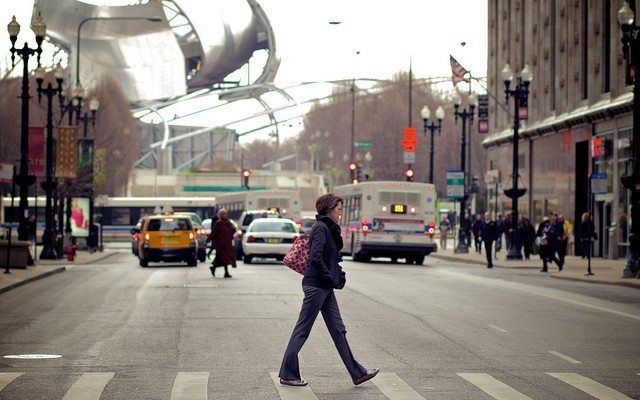 Image courtesy of [vonderauvisuals via Flickr]
Image courtesy of [vonderauvisuals via Flickr]
News
Women Shouldn’t Have to Deal With Street Harassment
One of the trendiest online discussions recently has been about street harassment — namely men catcalling women on the street. Earlier this month, Buzzfeed made a hilarious video about what men really “say” when they catcall.
As funny as that video is though, street harassment is a real issue. At least 65 percent of women report experiencing it, often in the form of lewd comments. I, for one, have experienced it more times than I can count. I know I’m lucky too, it has not gone beyond comments hurled at me as I walk down the street — many women also report having men grab at them, being flashed, or worse.
In a significantly more serious set of videos, women have started videotaping, and sometimes confronting, their street-harassers. One of these women, Lindsey from Minnesota, has started a campaign called “Cards Against Harassment.” They’re clever, to say the least. You can download a set of ten of them to hand out to guys who approach you on the street. For example, one of these cards reads, “I know you think you just paid me a compliment, but unwanted commentary on my appearance by strangers on the street makes me feel self-conscious and objectified.”
There have been a few different hashtags created to bring awareness to the problem of street harassment: #ThatsWhatHeSaid, #NotJustHello, and #YouOkSis are some of the most prominent. Take a second to scroll through them, if you feel up to it. They all contain truly horrifying incidences of street harassment.
In general, I feel like I’ve seen way more op-eds about how street harassment is wrong and how to deal with it in the last few months than I ever remember. For the most part, most commentators on the internet argue against street harassment and vow to put a stop to catcalling.
But then there are some, both men and women, who don’t see a problem with it. For example, New York Post blogger Doree Lewak wrote, “Hey, ladies — catcalls are flattering! Deal with it!” There’s a lot to be said about this article, firstly that it reads almost like satire. I genuinely can’t tell whether it is or no t– but my money is on the fact that it’s probably not satire, but rather a genuine viewpoint created by using hyperbolic language and lame attempts at being funny. Lewak explains that she feels empowered by being catcalled and wolf-whistled. She encourages other women to feel the same — starting with her provocative headline: “Deal with It.” She also points out that some catcalls do still make her feel uncomfortable, pointing out,
Of course, not all catcalls are created equal. The good ones are innocuous, not crass or obscene. To clarify, a compliment is “You’re beautiful,” and not “I like your nipples,” a crude comment beyond the point of no return.
The entire thing is gross in a lot of ways. And even if it’s supposed to funny, it’s clear that this woman has never felt actually harassed by catcalls. It’s clear that she’s never walked home late at night, and had someone — probably drunkenly — yell something obscene at her. If she had, she wouldn’t be writing a poorly done satirical piece making fun of all the women who had experienced that kind of fear.
Because #YesAllWomen, yes all people, need to stand together to eradicate the kind of harassment that so many of us experience. It’s not cute, it’s not funny, it’s just plain rude. And articles like the one Lewak wrote just don’t help.








Comments